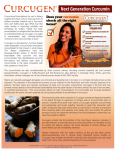Western lifestyle may limit gut bacteria diversity: Study

The new findings, which come from research analysing the gut diversity of species in the microbiota of people from the USA and comparing them to people from rural areas of Papua New Guinea, echo previous findings that have consistently linked modern Western diets and lifestyles to a reduced gut microbiome diversity.
“Papua New Guineans harbour communities with greater bacterial diversity, lower inter-individual variation, vastly different abundance profiles, and bacterial lineages undetectable in US residents,” said the authors, writing in the journal Cell.
While previous studies have been unclear how Western lifestyles have affected diversity, the new analysis suggests that reductions in species diversity could be because the ability to transmit species between people is more limited.
"There are several aspects of western lifestyle that have been hypothesized to alter the gut microbiome and decrease diversity," said senior author Jens Walter of the University of Alberta’s Department of Agricultural, Food & Nutritional Science. "These include diet, sanitation, and clinical practices such as antibiotic use and caesarean sections, but we lack a conceptual understanding of how our microbiomes are altered."
"These findings suggest that lifestyle practices that reduce bacterial dispersal - specifically sanitation and drinking water treatment - might be an important cause of microbiome alterations," Walter added. "We propose a modelbased on ecological theory that fits the data and provides an explanation for the decline of microbiota diversity in urban-industrialized societies."
Research details
Walter and his colleagues compared the faecal bacteria of adults from two rural, non-industrialized regions in Papua New Guinea with those of US residents. Papua New Guinea remains one of the least urbanized countries in the world, and the individuals who were studied live a traditional, subsistence agriculture-based lifestyle.
The research team found that Papua New Guineans have microbiomes with greater bacterial diversity, lower inter-individual variation, and vastly different compositional profiles compared with US residents.
US residents lacked approximately 50 bacterial types that belonged to the core microbiome in Papua New Guineans, said the team.
Further analysis suggested that the relative importance of ecological processes that structure the gut microbiota differ in westernized and non-industrialized societies, they added, noting specifically that bacterial dispersal, or the ability of bacteria to move from individual to individual, appears to be the dominant process that shapes the collection of gut bacteria in residents of Papua New Guinea but not those in US residents.

Walter and his colleagues suggested that their findings have implications for diet and human health – adding that that microbiome alterations associated with westernization might contribute to increases in non-communicable chronic diseases occurring in industrialized countries.
While modern western lifestyles and diets may be impacting microbiota and having a knock on effect on the risk of certain diseases, the team did caution against questioning modern lifestyles – noting that overall, health and life expectancy is higher in westernized societies.
"However, we can think about how we can reduce the collateral damage of modern lifestyle practices on the gut microbiome without jeopardizing the benefits," said study co-author Andrew Greenhill, from Federation University Australia.
"The findings from this study provide information that could be used to develop strategies to prevent and redress the impact of westernization and potentially support the dispersal and transmission of microbes that have been eradicated,” he said.


















